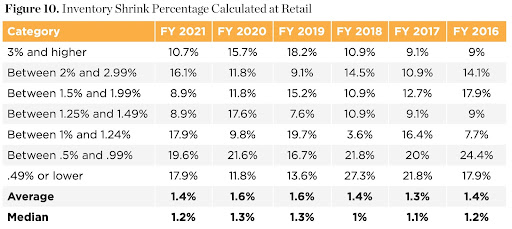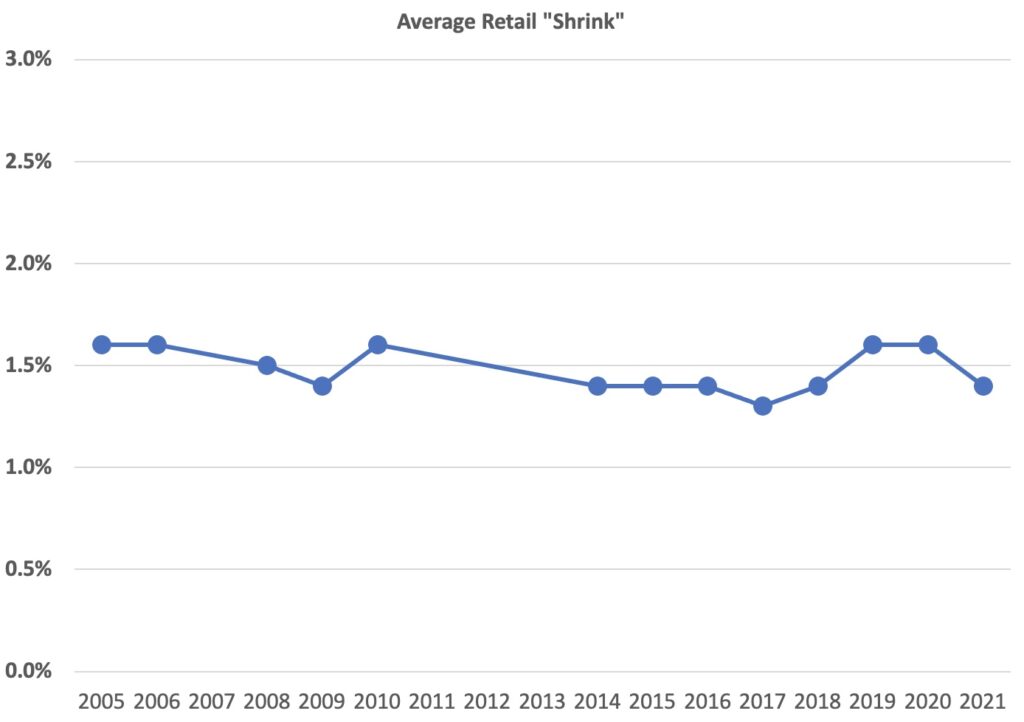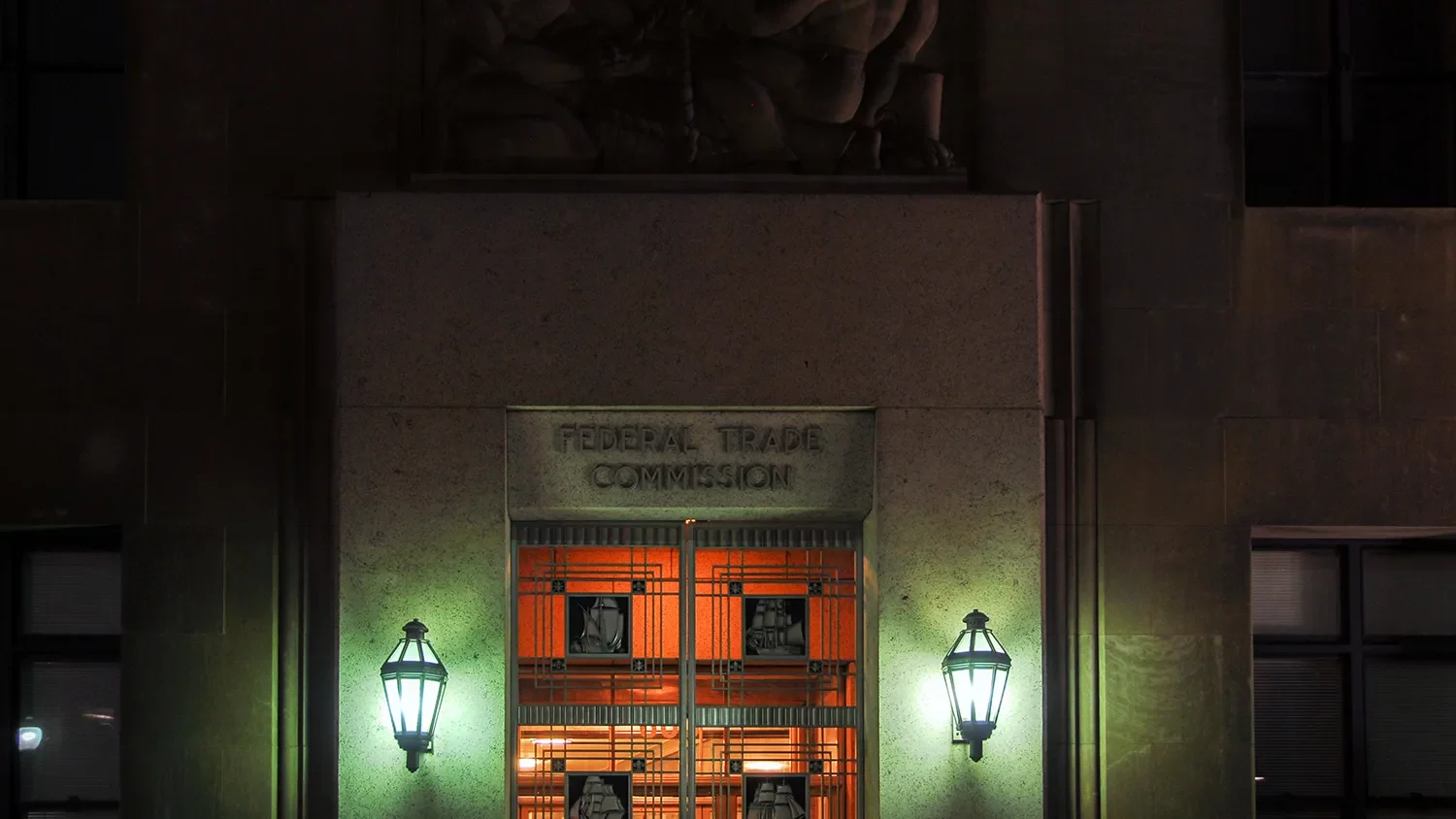Declining Retail Shrink Makes Shoplifting “Crisis” Narrative a Hard Sell
Last winter, press pieces abounded with stories about a purported shoplifting “crisis.” Such stories often included colorful quotes from certain retail spokespersons and assertions like “the uptick [in shoplifting] is tied to the ease of reselling stolen goods online.” It may have come as a surprise to some when on September 14, the National Retail Federation (NRF) released the latest edition of its annual National Retail Security Survey, which found that average retail “shrink” (the retail industry term for inventory loss, e.g., theft) declined in 2021 to levels on par with 2018, 2016, 2015, 2014, and 2009, and below levels seen in 2005, 2006, 2008, 2010, 2019, and 2020.
Source: 2022 Retail Security Survey, National Retail Federation, p. 9
As I noted previously, even before the 2021 NRF shrink numbers were available, there was no evidence that shoplifting was anything but a relatively flat phenomenon going back decades in the official NRF shrink figures.
Notes and Sources: Trevor Wagener/CCIA analysis of https://archive.org archived Annual Retail Security Surveys from the National Retail Federation, and 2022 Retail Security Survey
In a curious coincidence, many of the retail spokespersons pushing the disproven narrative of a significant uptick in shoplifting were from groups pushing for legislative proposals that would burden digital commerce. The false shoplifting “crisis” narrative has been used to justify various legislative proposals increasing regulatory burdens on digital commerce, including bills that would collectively make it nearly impossible to operate an online marketplace that helps small and medium-sized businesses sell their goods to consumers. As DisCo has previously observed, large incumbent retail interests have repeatedly rallied around legislation aimed at both online competitors and online marketplaces that reduce barriers to entry for small and medium-sized retailers.
Hopefully the latest retail inventory “shrink” data from the NRF, which disproves the shoplifting “crisis” narrative, will put to rest calls for costly legislation that would reduce competitive retail benefits for consumers to solve a nonexistent problem.










